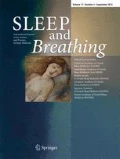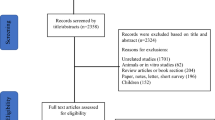Abstract
Objective
The Epworth sleepiness scale (ESS) is widely used to measure the subject's average sleep propensity across those different situations in daily life, particularly in patients with sleep-disordered breathing. The purposes of this study were to test the hypothesis that the Korean version of the ESS (KESS) is valid and evaluate its usefulness.
Materials and methods
We developed the KESS, which involved translating into Korean and then translating back into English to check its accuracy. A total of 273 participants (181 obstructive sleep apnea (OSA)—37 mild, 61 moderate, 83 severe, 32 simple snoring and 60 normal) were included in this study. All subjects completed the overnight polysomnograph and 53 of the total subjects were randomly selected for a retest with the questionnaire approximately 2∼4 weeks later. The associations between KESS and the degree of OSA were examined through ANCOVA, adjusted for age, sex and BMI.
Results
The total score and each item's score of KESS in patients with OSA were significantly higher than subjects with normal controls (p < 0.01). As the severity of OSA increased, the KESS showed significantly increasing patterns (p for trend <0.01). The KESS in patient groups showed good internal consistency (Cronbach's α = 0.90) and test–retest reliability (r = 0.78 to 0.93).
Conclusion
The KESS is a reliable and valid tool for screening patients with daytime sleepiness in Korea.

Similar content being viewed by others
References
Baran AS, Chervin RD (2009) Approach to the patient with sleep complaints. Semin Neurol 29(4):297–304
Schwartz JR, Roth T, Hirshkowitz M, Wright KP (2009) Recognition and management of excessive sleepiness in the primary care setting. Prim Care Companion J Clin Psychiatry 11(5):197–204
Joo S, Baik I, Yi H, Jung K, Kim J, Shin C (2009) Prevalence of excessive daytime sleepiness and associated factors in the adult population of Korea. Sleep Med 10(2):182–188
Kim J, In K, You S, Kang K, Shim J, Lee S, Lee J, Park C, Shin C (2004) Prevalence of sleep-disordered breathing in middle-aged Korean men and women. Am J Respir Crit Care Med 170(10):1108–1113
Wise MS (2006) Objective measures of sleepiness and wakefulness: application to the real world? J Clin Neurophysiol 23(1):39–49
Johns MW (1993) Daytime sleepiness, snoring, and obstructive sleep apnea. The Epworth sleepiness scale. Chest 103(1):30–36
Johns MW (1991) A new method for measuring daytime sleepiness: the Epworth sleepiness scale. Sleep 14(6):540–545
Johns MW (1994) Sleepiness in different situations measured by the Epworth Sleepiness Scale. Sleep 17(8):703–710
Beiske KK, Kjelsberg FN, Ruud EA, Stavem K (2009) Reliability and validity of a Norwegian version of the Epworth sleepiness scale. Sleep Breath 13(1):65–72
Bloch KE, Schoch OD, Zhang JN, Russi EW (1999) German version of the Epworth sleepiness scale. Respiration 66(5):440–447
Izci B, Ardic S, Firat H, Sahin A, Altinors M, Karacan I (2008) Reliability and validity studies of the Turkish version of the Epworth sleepiness scale. Sleep Breath 12(2):161–168
Takegami M, Suzukamo Y, Wakita T, Noguchi H, Chin K, Kadotani H, Inoue Y, Oka Y, Nakamura T, Green J, Johns MW, Fukuhara S (2009) Development of a Japanese version of the Epworth Sleepiness Scale (JESS) based on item response theory. Sleep Med 10(5):556–565
Tsara V, Serasli E, Amfilochiou A, Constantinidis T, Christaki P (2004) Greek version of the Epworth sleepiness scale. Sleep Breath 8(2):91–95
Rechtschaffen A, Kales A (1973) A manual of standardized terminology, techniques and scoring system for sleep stages of human subjects. National Institute of Health (USA) publication no. 204. Brain Information Service/Brain Research Institute, University of California, Los Angeles, California
Force AAoSMT (1999) Sleep-related breathing disorders in adults: recommendations for syndrome definition and measurement techniques in clinical research. Sleep 22(5):667–689
Johns MW (2000) Sensitivity and specificity of the multiple sleep latency test (MSLT), the maintenance of wakefulness test and the Epworth sleepiness scale: failure of the MSLT as a gold standard. J Sleep Res 9(1):5–11
Johns MW (2002) Sleep propensity varies with behaviour and the situation in which it is measured: the concept of somnificity. J Sleep Res 11(1):61–67
Osman EZ, Osborne J, Hill PD, Lee BW (1999) The Epworth sleepiness scale: can it be used for sleep apnoea screening among snorers? Clin Otolaryngol Allied Sci 24(3):239–241
Chervin RD, Aldrich MS (1999) The Epworth sleepiness scale may not reflect objective measures of sleepiness or sleep apnea. Neurology 52(1):125–131
Chen NH, Johns MW, Li HY, Chu CC, Liang SC, Shu YH, Chuang ML, Wang PC (2002) Validation of a Chinese version of the Epworth sleepiness scale. Qual Life Res 11(8):817–821
Chervin RD (2000) The multiple sleep latency test and Epworth sleepiness scale in the assessment of daytime sleepiness. J Sleep Res 9(4):399–401
Furuta H, Kaneda R, Kosaka K, Arai H, Sano J, Koshino Y (1999) Epworth sleepiness scale and sleep studies in patients with obstructive sleep apnea syndrome. Psychiatry Clin Neurosci 53(2):301–302
Johns MW (1992) Reliability and factor analysis of the Epworth sleepiness scale. Sleep 15(4):376–381
Acknowledgements
This work was supported by the research promoting grant from the Keimyung University Dongsan Medical Center in 2009.
Author information
Authors and Affiliations
Corresponding author
Appendix 1. The Korean version of the Epworth sleepiness scale
Appendix 1. The Korean version of the Epworth sleepiness scale
A. Korean version of the Epworth sleepiness scale (English)

B. Korean version of the Epworth sleepiness scale (Korean)

Rights and permissions
About this article
Cite this article
Cho, Y.W., Lee, J.H., Son, H.K. et al. The reliability and validity of the Korean version of the Epworth sleepiness scale. Sleep Breath 15, 377–384 (2011). https://doi.org/10.1007/s11325-010-0343-6
Received:
Revised:
Accepted:
Published:
Issue Date:
DOI: https://doi.org/10.1007/s11325-010-0343-6




